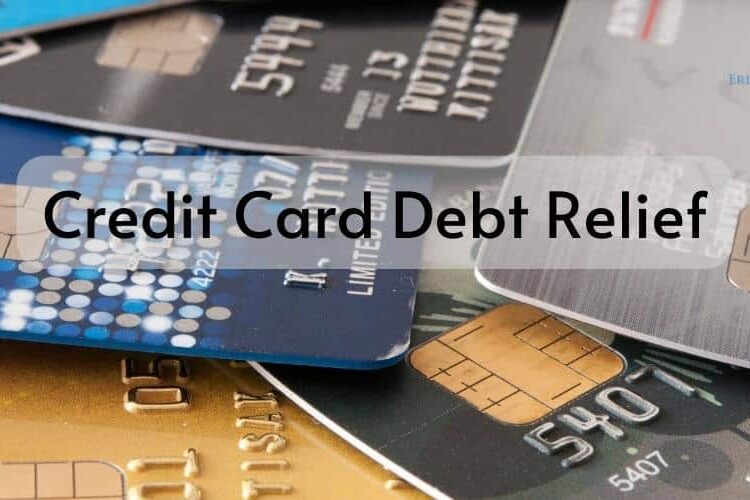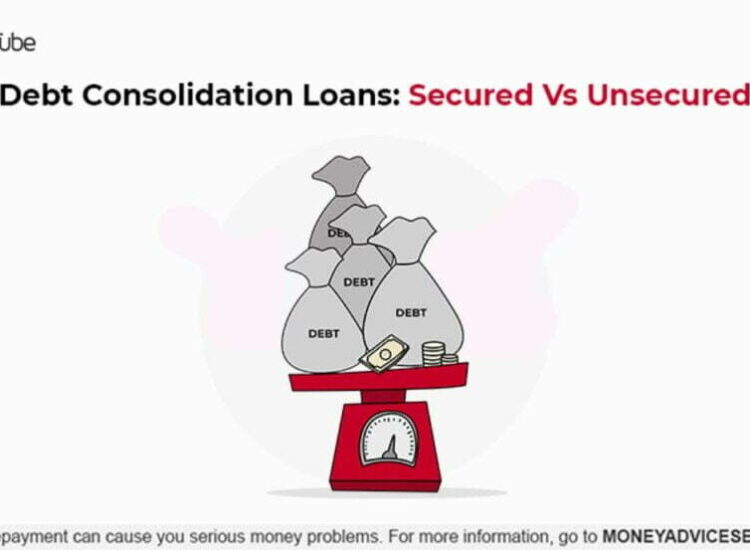You’ve built equity in your home, but securing the best home equity loan rates might feel like a game of chance. Contrary to popular belief, finding competitive rates is not solely about your credit score. Factors like loan-to-value ratio, market conditions, and even the lender’s specific policies play a significant role in determining the interest rate you qualify for. This article will guide homeowners seeking to access their home’s equity through a home equity loan or HELOC (Home Equity Line of Credit). We’ll explore factors impacting interest rates, provide tips for finding the best deals, and discuss alternative options.
Toc
Understanding Home Equity Loans and HELOCs

Home equity loans and HELOCs are valuable financial tools that allow homeowners to borrow against the equity they have accumulated in their properties.
What Are Home Equity Loans and HELOCs?
- Home Equity Loans: A home equity loan is a type of second mortgage that allows you to borrow a lump sum of money against your home’s equity. This loan typically features a fixed interest rate and fixed monthly payments over a set term, making budgeting straightforward.
- Home Equity Line of Credit (HELOC): Unlike a traditional home equity loan, a HELOC functions more like a credit card. It provides a revolving line of credit that you can draw from as needed, often with a variable interest rate. HELOCs offer flexibility for borrowers who may not need the full amount upfront.
Key Differences Between Home Equity Loans and HELOCs
- Repayment Structure: Home equity loans have fixed repayment terms, while HELOCs allow for more flexible borrowing and repayment.
- Interest Rates: Home equity loans usually have fixed rates, whereas HELOCs often feature variable rates that can fluctuate over time.
- Usage of Funds: Both can be used for various purposes, but HELOCs are particularly beneficial for ongoing expenses, such as home renovations.
Advantages and Disadvantages of Home Equity Loans and HELOCs
Both home equity loans and HELOCs offer unique advantages and disadvantages, each catering to different financial needs and risk tolerances. Home equity loans provide predictability with fixed payments, but they may not be suitable for short-term financial needs. Conversely, HELOCs offer flexibility but can expose borrowers to interest rate fluctuations.
Factors Affecting Home Equity Loan and HELOC Rates

When searching for the best home equity loan rates, several critical factors come into play.
Credit Score
Your credit score significantly impacts the interest rate you can obtain. A higher credit score often translates to lower interest rates, as lenders perceive borrowers with good credit as less risky. For example, a borrower with a credit score of 760 might qualify for a home equity loan with a 6.5% interest rate, while someone with a score of 680 might be offered a rate of 8.5%.
Loan-to-Value (LTV) Ratio
The loan-to-value ratio compares your outstanding mortgage balance to your home’s current market value. A lower LTV ratio typically results in better equity loan rates because it indicates less risk for the lender. For example, a homeowner with a $300,000 mortgage on a $400,000 home has an LTV of 75%. This is generally considered favorable and could lead to lower interest rates. However, if the home’s value drops to $350,000, the LTV increases to 85.7%, potentially leading to higher rates.
Market Conditions
Economic factors and prevailing interest rates also influence home equity loan rates. For example, in 2023, the Federal Reserve raised interest rates seven times, totaling 4.5 percentage points by the end of the year, which directly impacted home equity loan rates. When the Federal Reserve adjusts its benchmark rates, lenders often follow suit, leading to changes in the best home equity loan rates available. However, some lenders may offer fixed-rate home equity loans, which protect borrowers from interest rate fluctuations. Staying informed about economic trends can help you time your loan application effectively.
Lender Policies
Different lenders have varying policies and risk assessments that affect the rates they offer. It’s crucial to shop around and compare offers from multiple lenders to find the best rates for home equity loans. Some lenders may provide special promotions or lower rates based on their evaluation criteria.
Borrower’s Financial Health
Lenders evaluate your overall financial health, including your debt-to-income ratio and employment history, when determining your eligibility and interest rates. A lower debt-to-income ratio indicates that you have more disposable income available for loan repayment, making you a more attractive borrower.
1. https://sieuthi-viet.com/archive/3170/
2. https://sieuthi-viet.com/archive/3786/
3. https://sieuthi-viet.com/archive/3145/
How to Find the Best Home Equity Loan Rates

Finding the best rates for home equity loans requires diligence and strategic planning. Here’s how to navigate the process:
Check Your Credit Score
Start by reviewing your credit report. A higher credit score can lead to better equity loan rates. If your score needs improvement, consider paying down existing debt, making timely payments, and correcting any inaccuracies on your credit report.
Assess Your Home’s Equity
Calculate your home equity by subtracting your outstanding mortgage balance from your home’s current market value. Understanding how much equity you have will help determine the maximum amount you can borrow and the implications for your loan-to-value ratio.
Compare Lenders
Research various lenders, including banks, credit unions, and online providers. In recent years, online lenders have become increasingly popular for home equity loans. These lenders often offer more competitive rates and a more streamlined application process. However, it’s important to research the lender’s reputation and ensure they are licensed and regulated. When comparing offers, focus on interest rates, fees, loan amounts, and repayment terms to ensure you secure the best equity loan rates available.
Prequalify for Loans
Many lenders offer prequalification processes that allow you to gauge the loan terms you may qualify for without impacting your credit score. Prequalifying with multiple lenders can provide a clearer picture of your options.
Shop Around and Compare APRs
When evaluating loan offers, pay attention to the annual percentage rate (APR), which reflects the total cost of borrowing, including interest and fees. This comprehensive view will help you make an informed decision about the best equity home loan rate for your needs.
Negotiate for Better Rates
Don’t hesitate to negotiate with lenders for a lower interest rate. Present your strong credit profile and financial history to strengthen your position. If you have competing offers, use them as leverage in your negotiations.
Tips for Getting Approved for a Home Equity Loan

To enhance your chances of securing a home equity loan with favorable terms, consider these practical tips:
Maintain a Good Credit Score
Continuously monitor your credit report and take steps to keep your credit score high. This involves paying your bills on time, reducing your overall debt levels, and avoiding taking on new debt unnecessarily. Consistently maintaining a good credit score not only improves your chances of getting approved for a home equity loan but also ensures you receive the most favorable interest rates.
Stabilize Your Income
Lenders prefer borrowers with a stable and reliable source of income. Ensuring a steady income stream enhances your appeal to lenders as it suggests that you will be able to meet your loan repayments without difficulty. If possible, avoid making major career changes near the time of your loan application, as this could be perceived as a risk factor by lenders.
1. https://sieuthi-viet.com/archive/3156/
2. https://sieuthi-viet.com/archive/3199/
3. https://sieuthi-viet.com/archive/3170/
Decrease Your Debt-to-Income Ratio
A low debt-to-income (DTI) ratio demonstrates that you have more disposable income available to cover new debt obligations. To decrease your DTI, focus on paying down existing debts, such as credit card balances or personal loans, before applying for a home equity loan. This will not only improve your eligibility but also enable you to negotiate better terms.
Gather Necessary Documentation
Be prepared with essential documentation, such as proof of income, tax returns, and details of your current debts and assets. Having all paperwork organized and ready can expedite the loan process and showcase your preparedness and reliability as a borrower.
Explore Different Loan Options
Consider various types of home equity loans and lines of credit to determine which option best fits your financial situation and goals. Fixed-rate loans offer stability in payment amounts, while variable-rate HELOCs provide flexibility and potential access to fluctuating interest rates. Understanding each option thoroughly will help you make a more informed decision.
By following these tips, you can enhance your chances of being approved for a home equity loan with favorable terms, ultimately allowing you to secure the funding you need to achieve your financial objectives.
Alternatives to Home Equity Loans

While home equity loans can be beneficial, other options may better suit your financial needs.
Home Equity Line of Credit (HELOC)
A Home Equity Line of Credit (HELOC) functions similarly to a credit card, providing you with a revolving line of credit based on the equity of your home. Unlike a traditional home equity loan, where you receive a lump sum amount, a HELOC allows you to borrow as needed within a predetermined limit during the draw period. This flexibility can be particularly advantageous if you require funds intermittently or are unsure of the total costs of your forthcoming projects. The interest rate for a HELOC is typically variable, which can be a double-edged sword; while you might benefit from lower payments if the rates decrease, you could face higher payments if the rates rise. Therefore, a HELOC might be most suitable for someone who can manage potential interest fluctuations and prefers flexible borrowing access.
Cash-Out Refinancing
Cash-out refinancing is another alternative to consider if you are seeking funds from your home’s equity. This financial strategy involves refinancing your existing mortgage with a new home loan for a larger amount than you currently owe. By doing so, you “cash out” the difference between the two mortgages, providing you with immediate capital. This option can be attractive if current interest rates are lower than your original mortgage rate, potentially reducing your monthly payments while freeing up funds. However, it’s crucial to remember that cash-out refinancing extends the repayment duration of your mortgage, possibly increasing the total interest paid over time. It may be best for borrowers looking to consolidate higher-interest debts or fund significant expenses like home renovations while maintaining predictable loan terms.
Shared equity agreements present a unique alternative for accessing your home’s equity without incurring traditional debt. In these arrangements, you partner with an investor who provides funds in exchange for a share of the future appreciation (or depreciation) of your property. This can be beneficial if you’re looking to unlock equity without taking on more debt or monthly payments. However, it’s vital to understand the implications of sharing your home’s future value with another party. This type of agreement often includes specific terms regarding how and when the equity is settled, typically during the sale of the property or at a predetermined future date. As this is a non-traditional financial product, it is essential to carefully review the contract terms and consult with a financial advisor or legal professional to ensure it aligns with your long-term financial goals.
Conclusion
In conclusion, understanding the various options for accessing your home’s equity and the associated considerations can help you make informed financial decisions tailored to your needs. Whether you opt for a traditional home equity loan, a HELOC, cash-out refinancing, or a shared equity agreement, each path offers distinct benefits and potential drawbacks. It’s important to thoroughly research and consult with financial advisors to determine how these options align with your current financial situation and long-term goals. By taking the time to evaluate these choices, you can effectively leverage the equity in your home to achieve significant financial objectives, whether they involve renovations, debt consolidation, or other major expenses. Remember, managing your home’s equity responsibly can lead to substantial benefits while safeguarding your financial well-being.










